Indigenous Governance Database
Tribal Constitutions Seminars
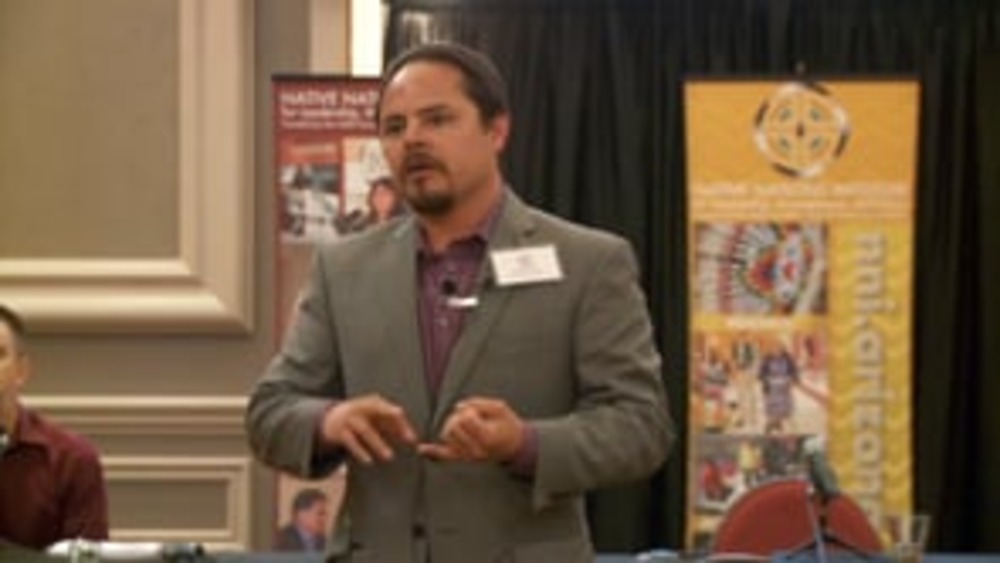
Carlos Hisa and Esequiel (Zeke) Garcia: Ysleta del Sur Pueblo: Redefining Citizenship
Carlos Hisa and Esequiel (Zeke) Garcia from Ysleta del Sur Pueblo (YDSP) provide an overview of the approach that YDSP is following as it works to redefine its criteria for citizenship through community-based decision-making. They also share the negative impacts that adherence to blood quantum as…
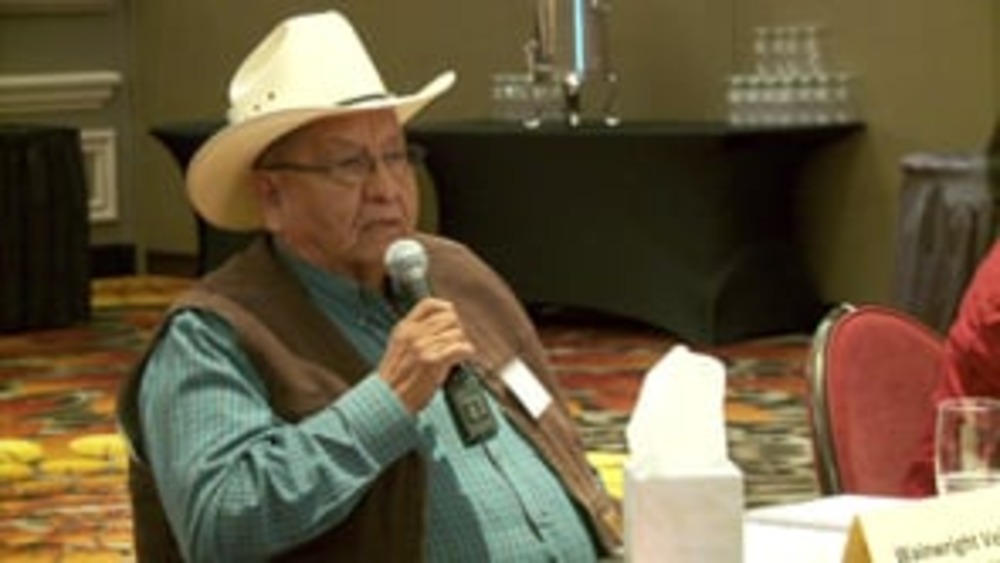
Robert Hershey and Andrew Martinez: The Legal Process of Constitutional Reform (Q&A)
Robert Hershey and Andrew Martinez engage participants in a lively discussion about the intricacies of secretarial elections and whether and how Native nations with Indian Reorganization Act constitutions should remove the Secretary of Interior approval clause from those governing documents.
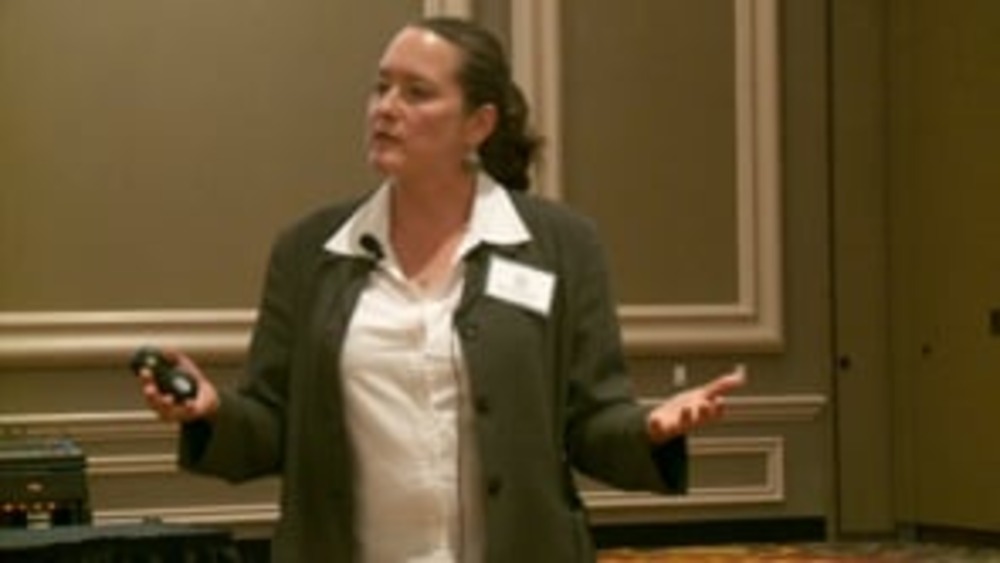
Miriam Jorgensen: Considering People-Made Law in Your Constitution (Presentation Highlight)
In this highlight from the presentation "Key Things a Constitution Should Address: 'How Do We Make Law?'," Miriam Jorgensen lays out some of the different ways that Native nations can provide mechanisms for citizens of those nations to make laws or change laws governing those nations.
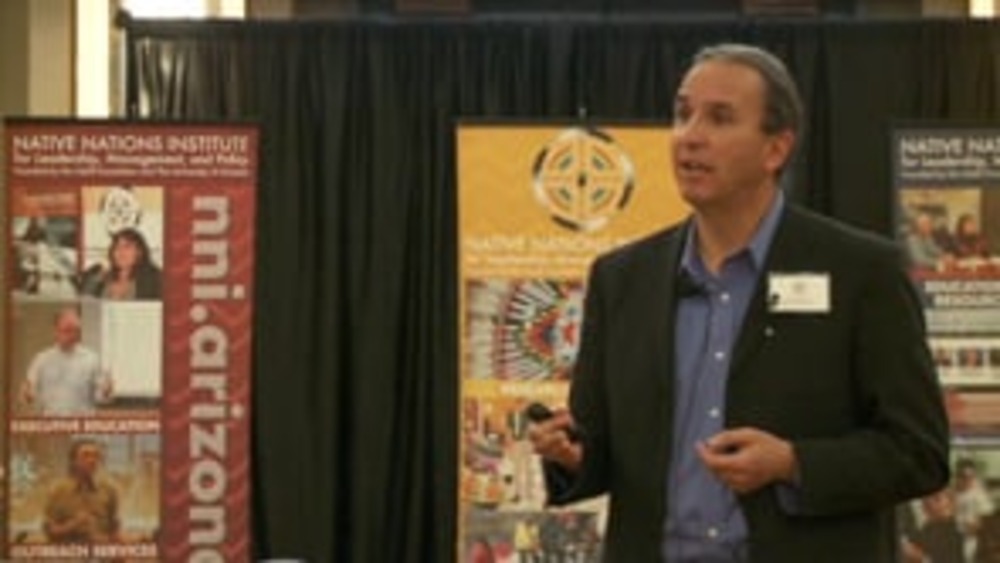
Terry Janis: Citizen Engagement and Constitutional Change at the White Earth Nation
Terry Janis (Oglala Lakota), former Project Manager of the White Earth Nation Constitution Reform Project, provides participants with a detailed overview of the multi-faceted approach to citizen engagement that the White Earth Nation followed as it worked to educate the White Earth people about the…
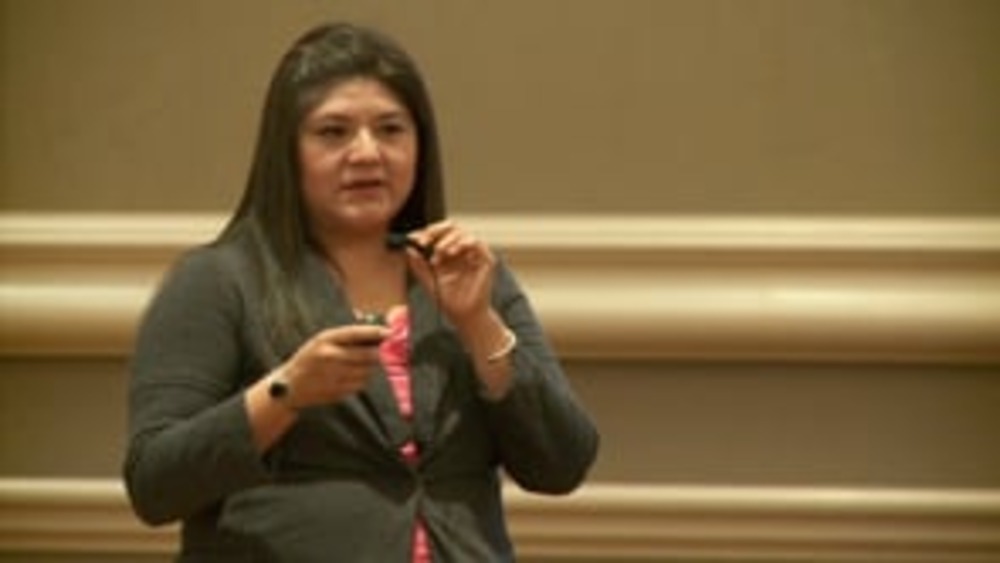
Shannon Douma: Cultivating Good Leadership: The Santa Fe Indian School's Summer Policy Academy
Shannon Douma (Pueblo of Laguna) provides a detailed overview of how the Santa Fe Indian School's Summer Policy Academy works to develop Pueblo youth to ably take the leadership reins of their nations through a rigorous curriculum designed to build up their sense of cultural identity and personal…
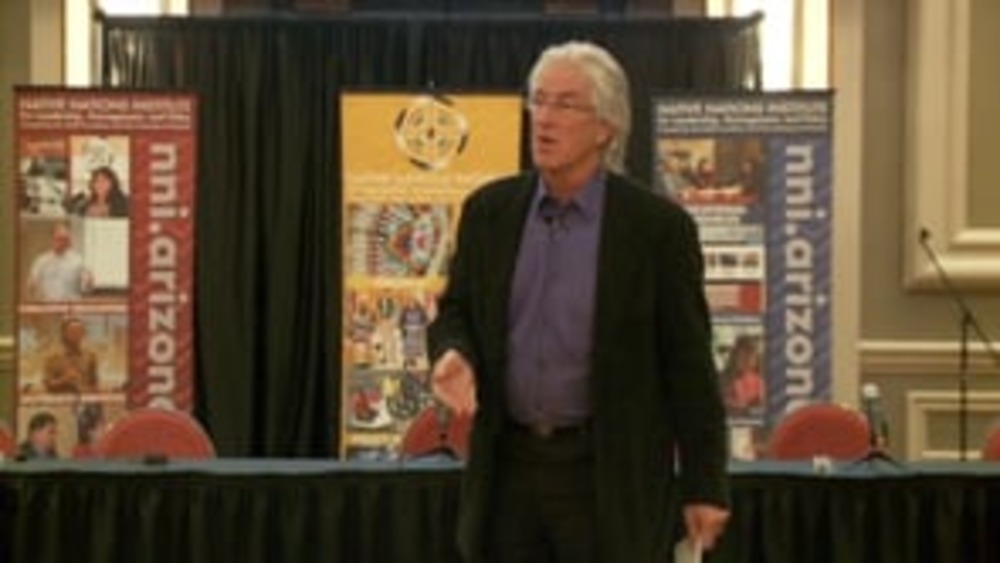
Robert Hershey: Dispelling Stereotypes about the Federal Government's Role in Native Nation Constitutional Reform
Robert Hershey, Professor of Law and American Indian Studies at The University of Arizona, dispels some longstanding stereotypes about what the federal government can and will do should a Native nation decide to amend its constitution to remove the Secretary of Interior approval clause or else make…
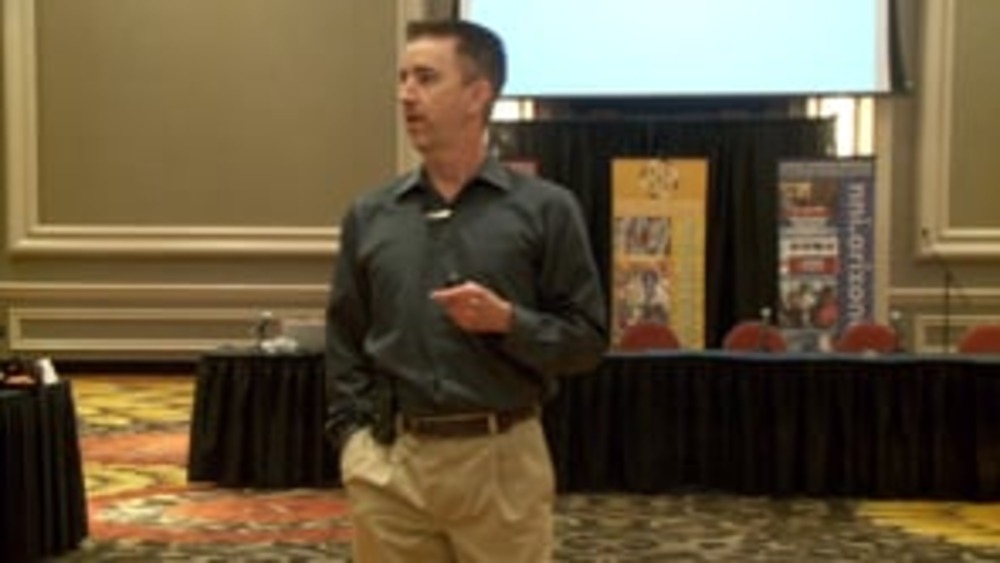
Ian Record: Some of the Difficulties of Constitutional Reform (Presentation Highlight)
In this highlight from the presentation "Defining Constitutions and the Movement to Remake Them," Ian Record discusses two of the many challenges that Native nations typically encounter when they move to change their existing constitutions or develop new ones.
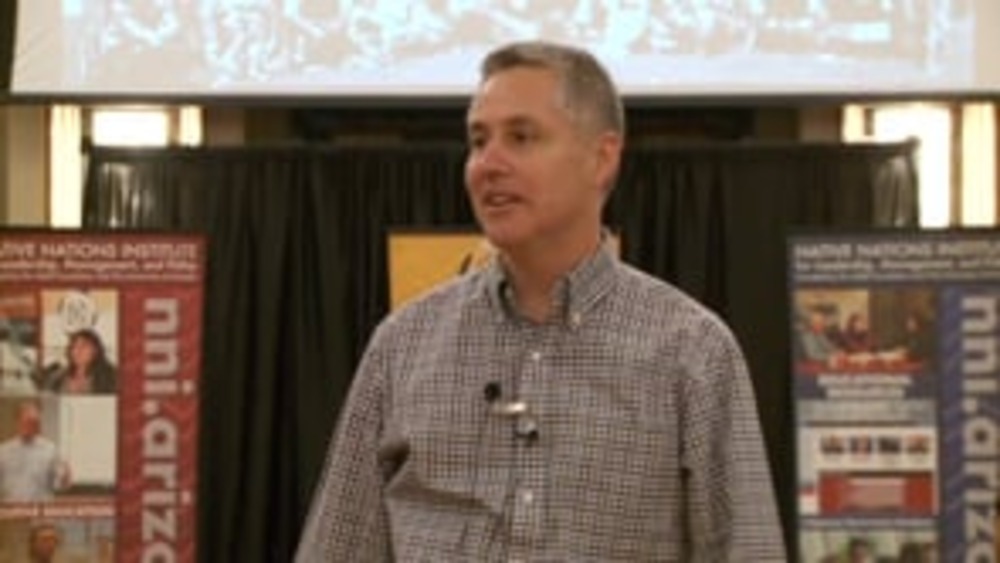
John Borrows: Who Are We and How Do We Know?
University of Minnesota Law Professor John Borrows (Anishinaabe) discusses how the Anishinaabe traditionally defined and practiced notions of social identity and belonging, and how those definitions and practices were rooted in relationships: relationships between those deemed to be part of the…
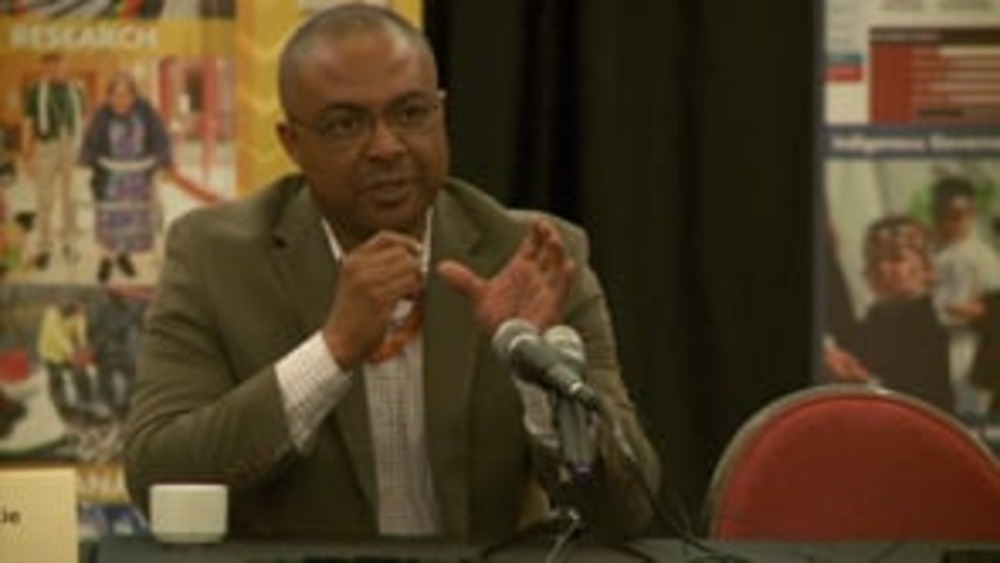
Shannon Douma and Richard Luarkie: How Do We Choose Our Leaders and Maintain Quality Leadership? (Q&A)
Shannon Douma and Richard Luarkie (Pueblo of Laguna) field questions from seminar participants about how the Pueblo and also the Santa Fe Indian School's Summer Policy Academy groom Pueblo youth to take over the reins of leadership of their nations.
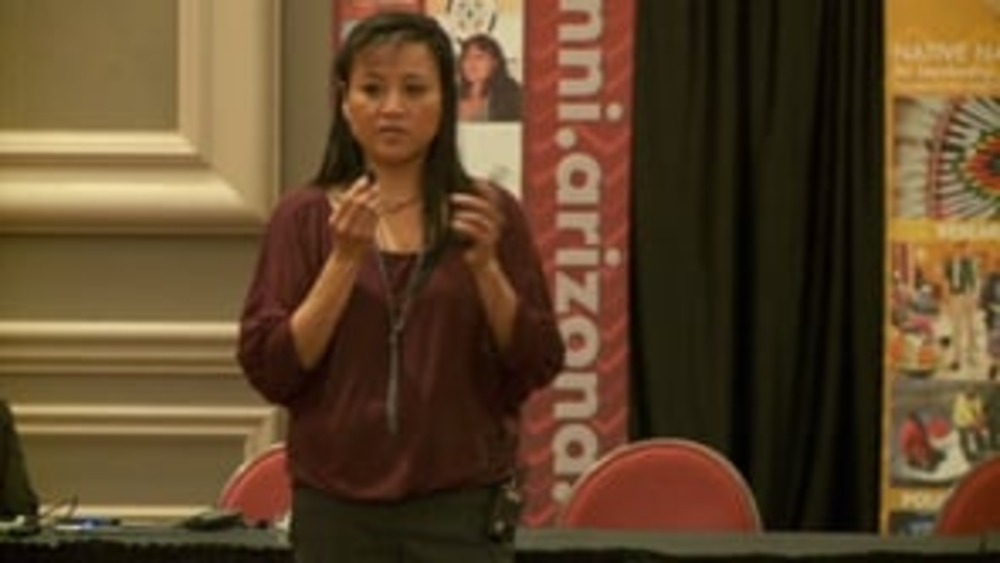
Jennifer Porter: The Kootenai Tribe: Strengthening the People's Voice in Government Through Constitutional Change
Jennifer Porter, former chairwoman and current vice-chairwoman of the Kootenai Tribe of Idaho, discusses how her nation moved to amend it constitution to change its basis of political representation, how the U.S. Secretary of Interior and the Bureau of Indian Affairs (BIA) tried to block the move,…
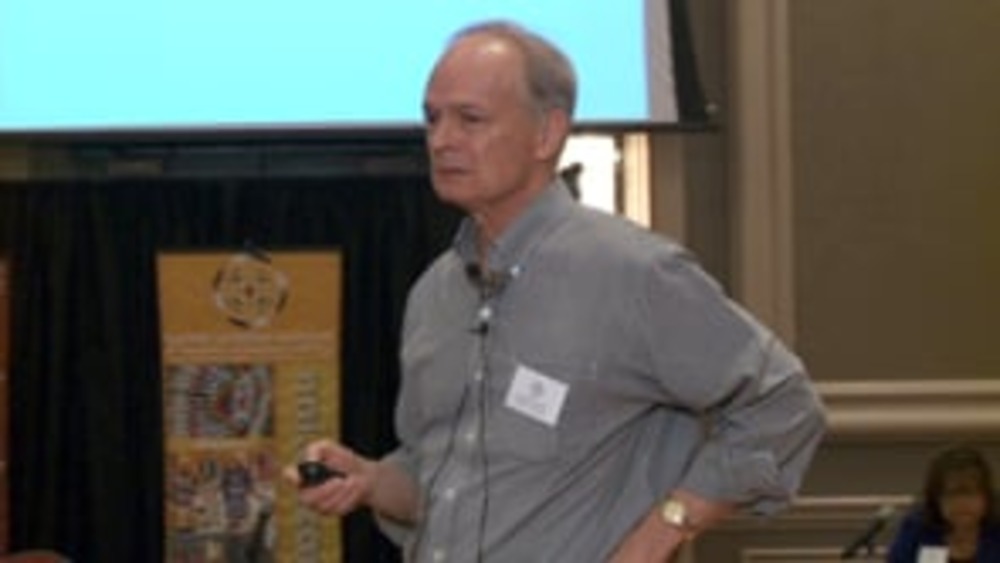
Stephen Cornell: Defining Constitutions (Presentation Highlight)
In this highlight from the presentation "Defining Constitutions and the Movement to Remake Them," Stephen Cornell provides some basic definitions of what a constitution is and the role it fundamentally plays -- or should play in the life of Native nations.
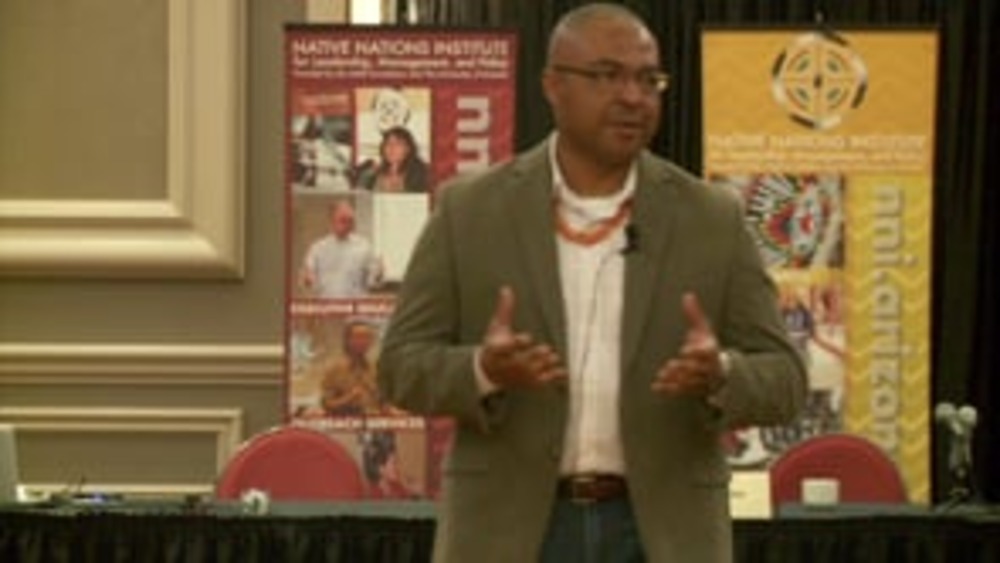
Richard Luarkie: How Do We Choose Our Leaders and Maintain Quality Leadership?: The Pueblo of Laguna
Pueblo of Laguna Governor Richard Luarkie provides a brief overview of how Laguna citizens gradually and systematically ascend up the leadership ranks within the Pueblo through their adherence to and practice of Pueblo core values.
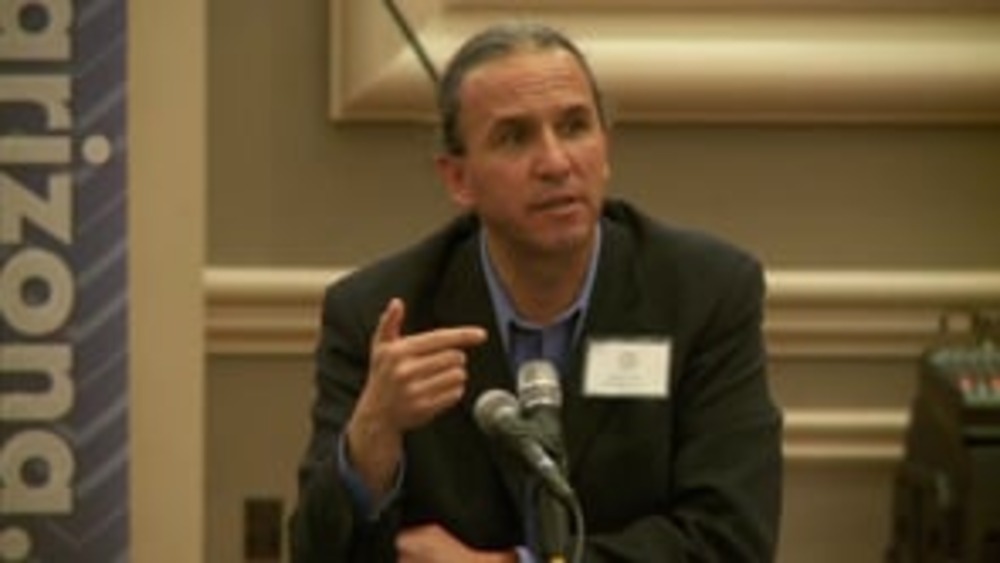
Terry Janis: Citizen Engagement and Constitutional Change at the White Earth Nation (Q&A)
Terry Janis, former Project Manager for the White Earth Constitution Reform Project, fields questions from the audience about his specific role in White Earth's constitutional reform process. He stresses the need for those engaging in constitutional reform to be cognizant of the fact that a process…
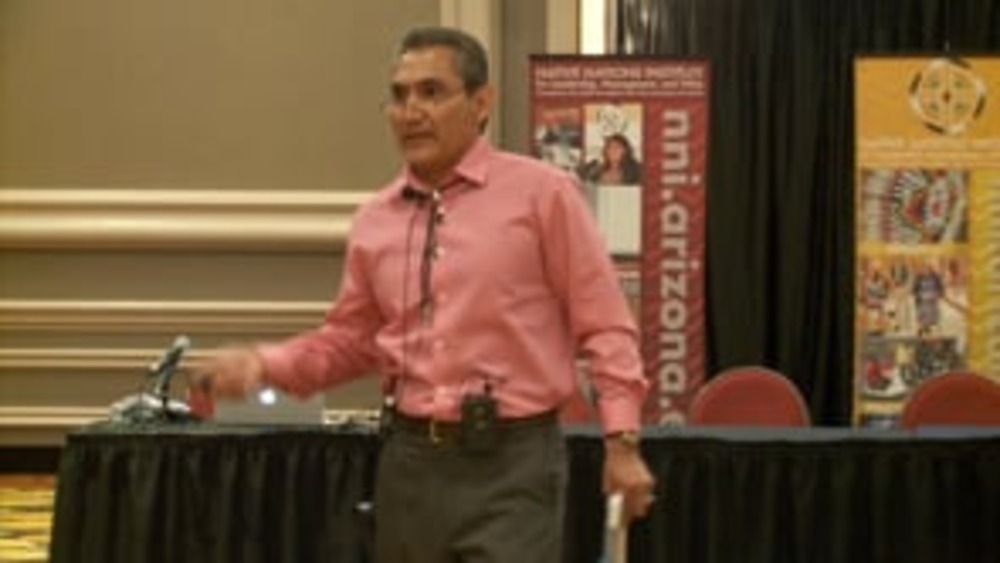
Joseph Flies-Away: Knowing, Living and Defending the Rule of Law
Joseph Flies-Away (Hualapai), Associate Justice of the Hualapai Nation Court of Appeals, discusses the importance of Native nations building and living a sound, culturally sensible rule of law -- through constitutions, codes, common law and in other ways -- that everyone in those nations knows,…
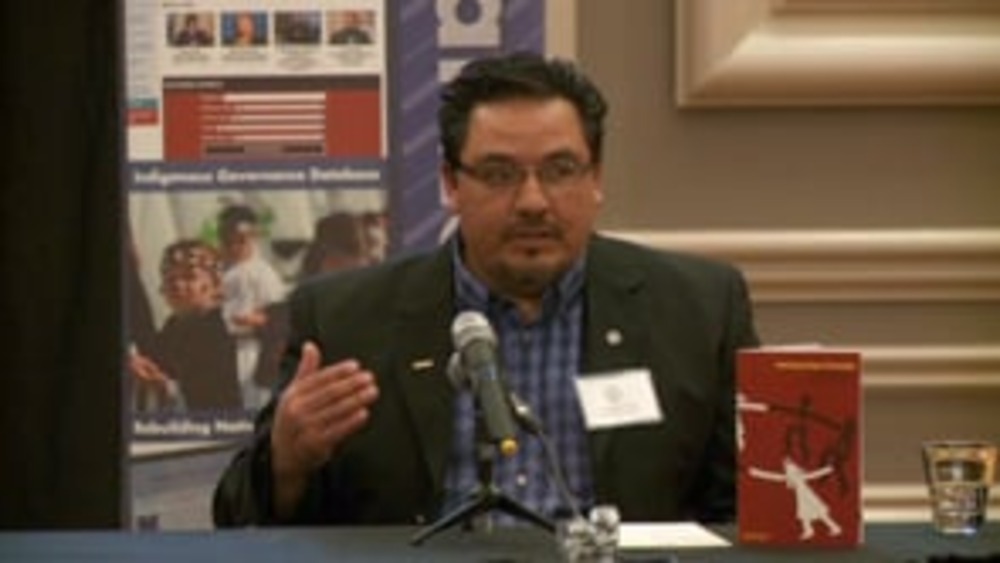
Carlos Hisa and Esequiel (Zeke) Garcia: Ysleta del Sur Pueblo: Redefining Citizenship (Q&A)
Carlos Hisa and Zeke Garcia from Ysleta del Sur Pueblo (YDSP) field questions about YDSP's current community-based effort to redefine its criteria for citizenship, and they provide additional detail about the great lengths to which YDSP has gone in order to document the origins and history of their…
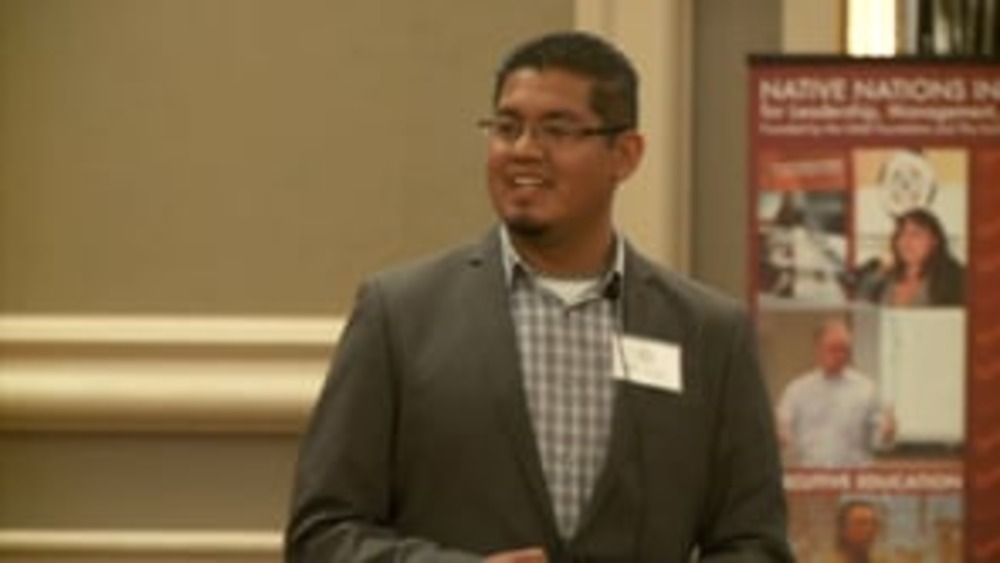
Andrew Martinez: Constitutional Reform: The Secretarial Election Process
Native Nations Institute's Andrew Martinez (Salt River Pima-Maricopa Indian Community) gives participants a concise and informative overview of how the secretarial election process works when Native nations amend their constitutions, and what happens (and doesn't) when Native nations remove…
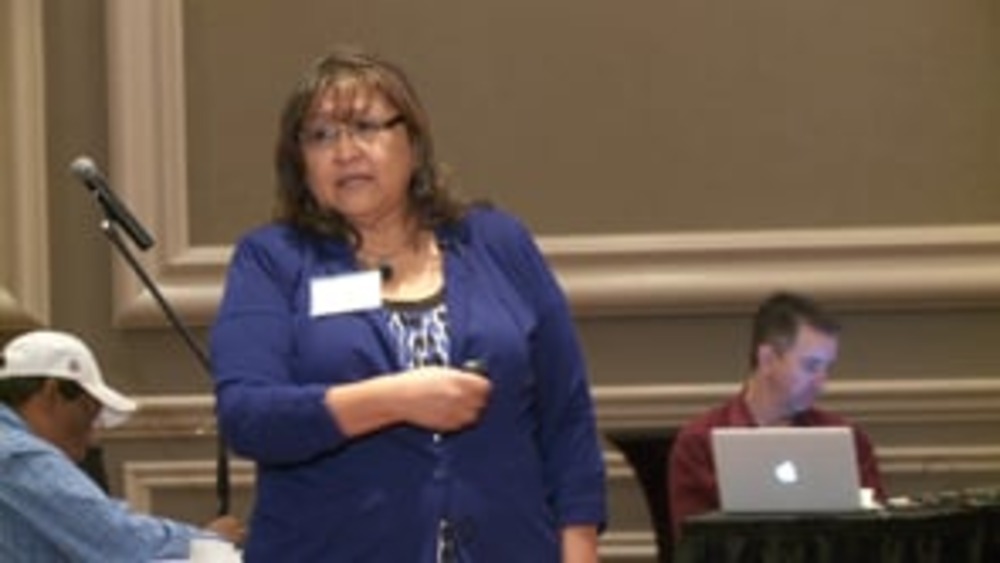
Joan Timeche: The Hopi Tribe: Wrestling with the IRA System of Governance (Presentation Highlight)
In this highlight from the presentation "Defining Constitutions and the Movement to Remake Them," Joan Timeche (Hopi) discusses how the Hopi Tribe continues to wrestle with an Indian Reorganization Act constitution and system of governance that runs counter to its traditional, village-based system…
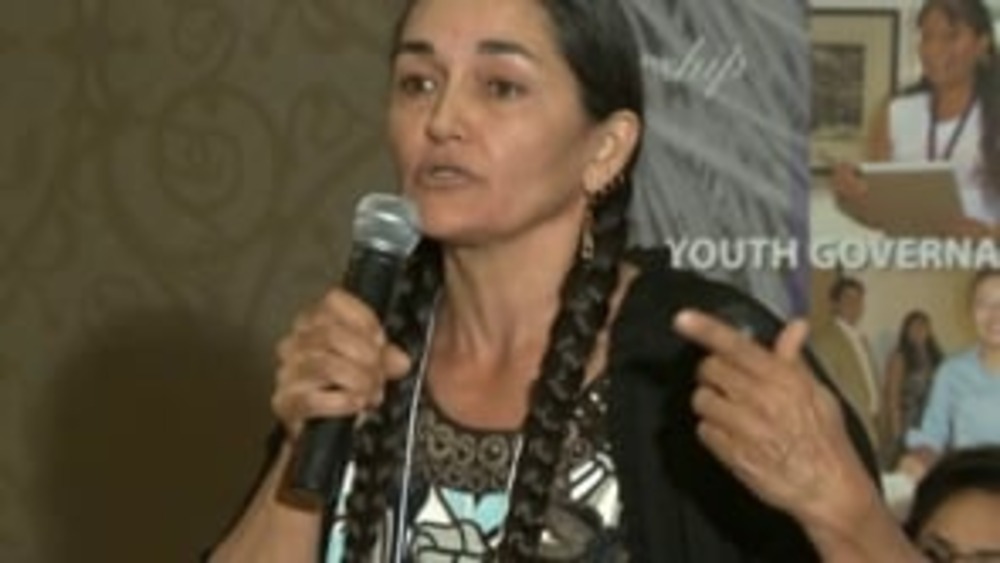
Gwen Phillips: The Relationship Between Constitution, Culture, and Citizenship
Gwen Phillips, Director of Corporate Services and Governance Transition with the Ktunaxa Nation, discusses some of the issues that the Ktunaxa Nation is deliberating as it engages the question of how to redefine its criteria for citizenship.
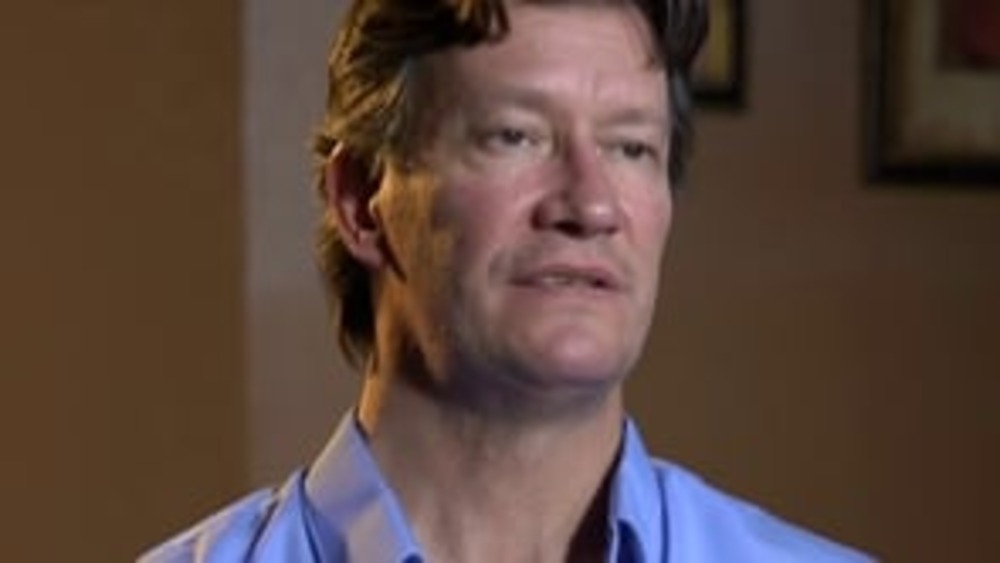
Native Leaders: The Purpose and Challenge of Redefining Citizenship
Several Native leaders share their thoughts on why their nations are deliberating potential changes to their citizenship criteria, and they discuss some of the many challenges that Native nations face in this complex area of governance.
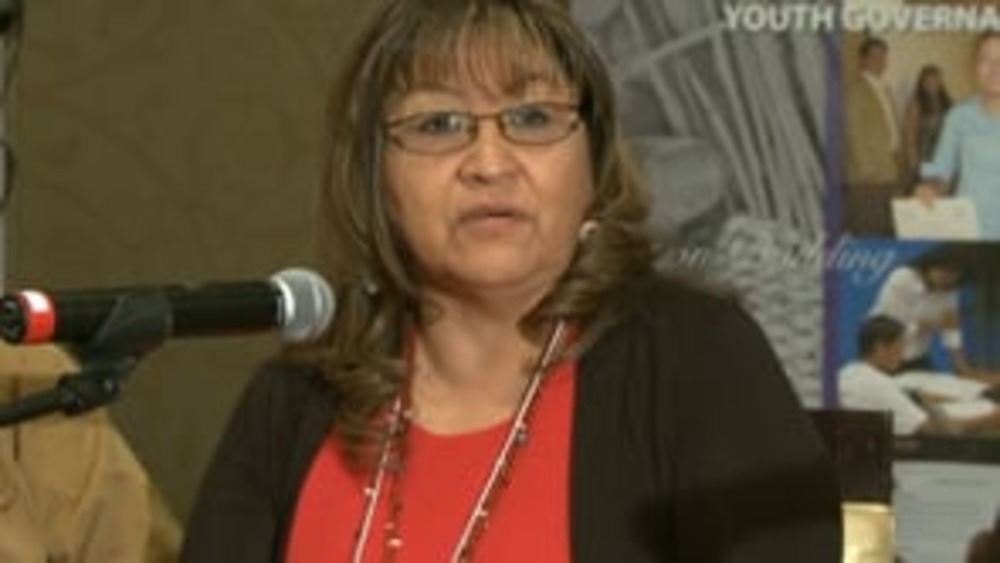
Native Leaders and Scholars: Citizens Versus Members: Some Food for Thought
Native Leaders and scholars discuss the pervasive role that terminology plays in conceptions of Native nation sovereignty and citizenship, comparing and contrasting the terms "member" and "citizen" and discussing the origins of the term "member" in Native nations' definitions of who is to be…
